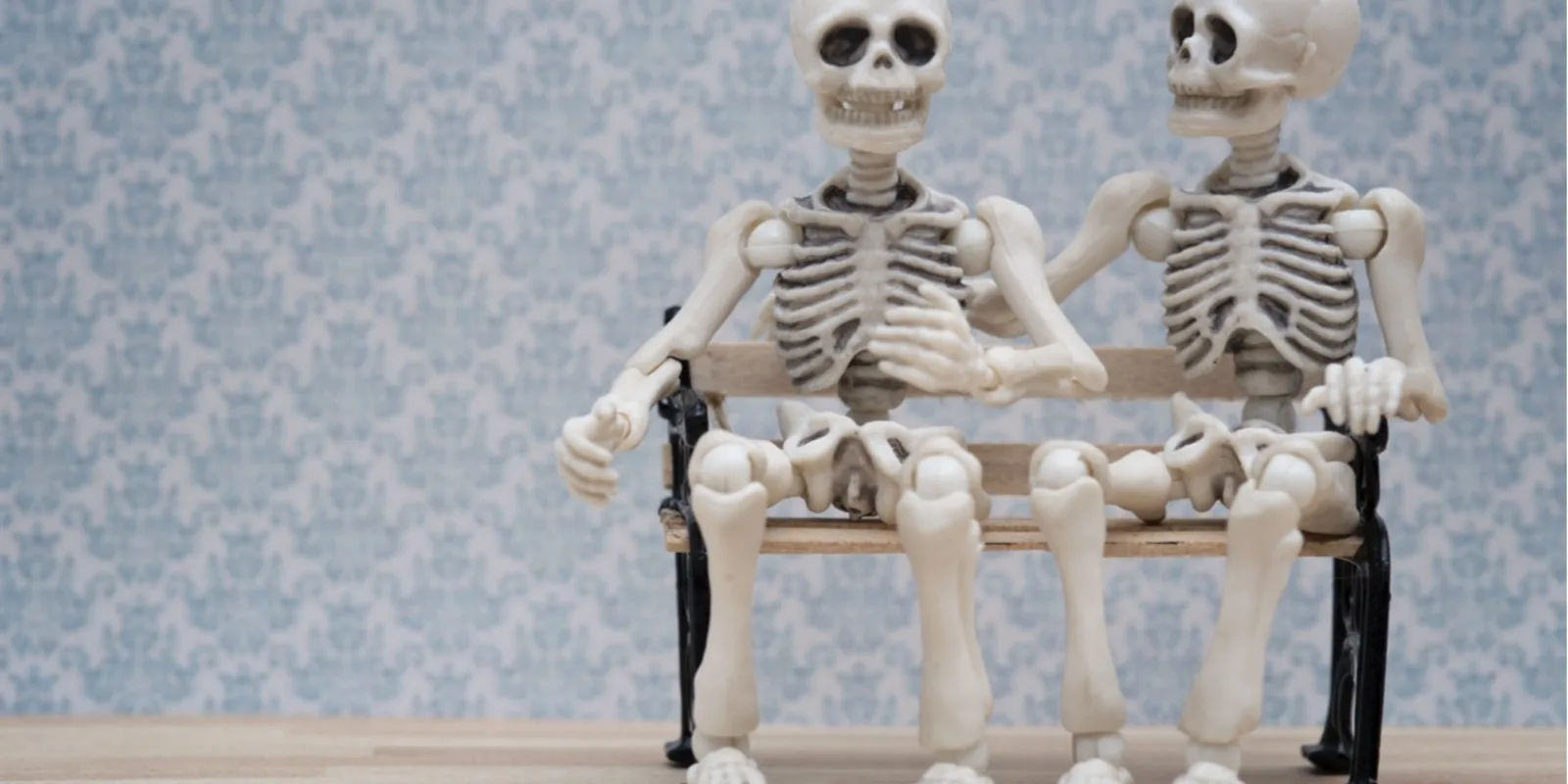
From death cleaning in Sweden to reimagining the end of life through art in San Francisco, death is having a moment. Clinicians and patients alike are increasingly shining a spotlight on the need for early conversations about death and dying.
Doximity members, too, have written about preparing for the end of life, treating dying patients, supporting the bereaved, and processing their own grief when a patient dies. And yet, all too often, patients and families fall through the cracks, demonstrating the continued need for these conversations.
The latest awareness campaign is Dying Matters Week (May 14–20) in the United Kingdom, which aims to promote public awareness of dying, death, and bereavement. This week, healthcare professionals are tweeting about why it’s important for people of all ages to talk about the end of life.
We are supporting #DyingMattersWeek. Talking about dying makes it more likely that you, or your loved one, will die as you might have wished. It will make it easier for your loved ones if they know you have had a ‘good death’. Find out more: https://t.co/KfVWI7uX11 #WhatCanYouDo
— St Raphael's Hospice (@St_Raphs) May 17, 2018
#DyingMattersWeek gives us an opportunity to discuss the elephant in the room: Too many frail older people are dying in the wrong place. Everyone can make a difference! Could you be an Advance Care Planning Champion in your workplace? @HEE_KSS @KSSAHSN #ACPChampions (1)
— Jacqueline Joyce__ (@Jacquelin_Joyce) May 14, 2018
It is #DyingMattersWeek. It is so important to talk about it to try to get the death you want and deserve. Especially if you're living with a terminal illness.#DyingMatters https://t.co/TpwtNJAFhC
— amanda portal (@aportal73) May 17, 2018
‘Talking about my son does not make me sad – it makes my heart sing’: Why we need to start talking about child bereavement - https://t.co/6RD8CxNLUQ @fionalikes @MetroUK #DyingMattersWeek @DyingMatters #WhatCanYouDo pic.twitter.com/EPEVzW1Src
— Child Bereavement UK (@cbukhelp) May 16, 2018
They’re asking all the hard questions…
One thing is an absolute certainty for all of us...#death. On day 1 of #dyingmattersweek I ask you ‘Have you thought about what matters to you when you die?’ Please take a minute to think about this & share it with those close to you regardless of your age or present health.
— Letizia Perna-Forrest (@perna_letizia) May 14, 2018
#DyingMattersWeek @MFTnhs thought provoking questions at the taboo cafe tx to the team great work pic.twitter.com/8XHm8YE1Ib
— sue langley @mft (@suelang85545212) May 15, 2018
@wmasnatgreaves @StRichardsHosp this week we are discussing #DyingMatters #DyingMattersWeek and #FuneralSongs what will yours be?
— Tricia Cavell (@trixiepops) May 17, 2018
Our installation @u_n_s_a_i_d_ was given a home by @GSTTnhs for their @DyingMatters #DyingMattersWeek events, giving visitors an opportunity to share the words never said. Is there something you're not saying? What didn't you say?
— Life.Death.Whatever. (@LifeDeathWhat) May 17, 2018
Thanks to @kimberleystjohn for organising. pic.twitter.com/sMFCT2AUxs
…and providing resources if you don’t know how to answer.
“Matters relating to food and drink in the last few days of someone’s life can often cause the most fear and upset among families”
— Malnutrition TF (@MalnutritionTF) May 15, 2018
For #Dyingmattersweek, our blog looks at dealing with anxieties around eating+drinking at the end of life: https://t.co/HlfaDN3jLf #WhatCanYouDo pic.twitter.com/N39Tr9nd4H
Cochrane resources to help talk about dying, death, bereavement, and making plans for the end of life. - https://t.co/w2egXKRBQw - @CochranePaPaS @DyingMatters #DyingMatters #DyingMattersWeek #dyingawarenessweek pic.twitter.com/SnyfLl9ogx
— Cochrane UK (@CochraneUK) May 17, 2018
They emphasize emotional support for the dying…
It’s #DyingMattersWeek our awareness stand is in main reception all week. #WhatCanYouDo
— Kingston Hospital (@KingstonHospNHS) May 16, 2018
Let’s talk about it – thought for the day ‘Those who are dying often just want to feel normal. It can really help if you do some regular things together. And just be yourselves.’
It feels kind and logical to share choices & preferences around death and dying with friends and loved ones. But opportunities like #GraveTalk in #DyingMattersWeek are rare. Ppl whose language is compromised by #aphasia #primaryprogressiveaphasia need access and opportunity too pic.twitter.com/lzlZ2wDIZP
— Rosemary Townsend (@RosemaryTowns15) May 15, 2018
“A simple thing like making a cup of tea is enough to make someone's day a little better. Whilst it's more than just a cup of tea, the conversations we share with patients and families is really where we make a difference." Our volunteer shares #WhatYouCanDo for #DyingMattersWeek pic.twitter.com/0iNRoizHdB
— St Peter's Hospice (@stpetershospice) May 16, 2018
…as well as support for the loved ones those patients leave behind.
When I die, I want care and compassion to be shown, not just to me, but my nearest and dearest too #dyingmattersweek @WhippsCrossHosp @NHSBartsHealth
— Alan Gurney (@AlanGurney6) May 15, 2018
#DyingMattersWeek Grief is a natural response to losing someone you love. There is no right or wrong way to grieve. This short video might help us think about grief slightly differently & how it fits into our lives once someone has gone. https://t.co/xcrlhtL2wX pic.twitter.com/eGCxWPNoPP
— Arthur Rank Hospice (@ArthurRankHouse) May 17, 2018
Examples of our #memory keepsakes made for parents. #DyingMattersWeek pic.twitter.com/JQSlH71EqX
— St Mary's Hospital (@SMH_GynMatNicu) May 15, 2018
Importance of listening to one another :-https://t.co/6btOJgOJHV #DyingMattersWeek @guardiannews @ResusCouncilUK @TheEconomist @NHSEngland @WestBerksPH @HealthwatchE @DHSCgovuk @AgeUKBerks @IndependentAge @AGoodDeath @seapadvocacy @NewburyToday
— HealthwatchWestBerks (@HealthWWBerks) May 17, 2018
Do you work in a hospice and/or palliative care setting? What do you want to know about death and dying? What do you want others to know? Tell us in the comments below.






